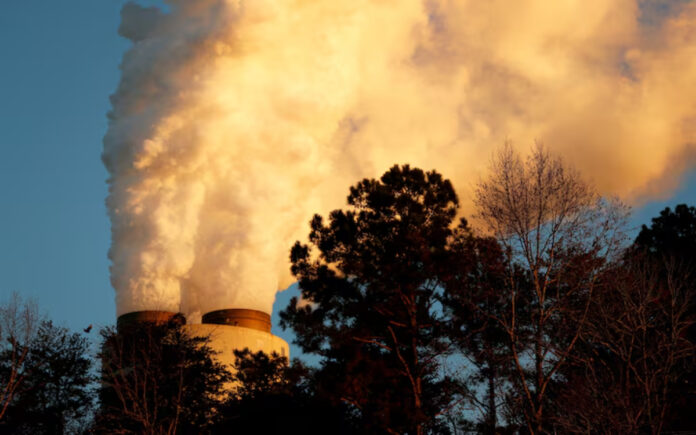Washington: On Friday, a U.S. appeals court ruled that the Environmental Protection Agency’s regulation mandating substantial reductions in power plant carbon emissions will proceed while it reviews a challenge from over two dozen Republican-led states. This ruling permits the implementation of the rule, which targets existing coal-fired power plants and new natural gas facilities.
The U.S. Court of Appeals for the D.C. Circuit in Washington, D.C., determined that a stay was unnecessary as the states would not face immediate harm; the rule’s earliest compliance deadline is set for 2030. An EPA spokesperson expressed satisfaction with the court’s decision, while West Virginia Attorney General Patrick Morrisey, leading the challenge, criticized the rule as unlawful and announced plans to seek a stay from the U.S. Supreme Court.
The regulation, part of Democratic President Joe Biden’s broader climate agenda, mandates a 90% reduction in greenhouse gas emissions by 2032. It has faced opposition not only from the states—such as Indiana, Ohio, and Kansas—but also from electric utility, mining, and coal industry trade groups.
Also Read | Global Tech Outage Affects Exelon and Other U.S. Power Utilities
To meet the new standards, the U.S. power industry—responsible for nearly a quarter of the nation’s greenhouse gas emissions—would need to invest in expensive emissions control technologies or close the most polluting coal plants. The EPA maintains that these reductions are achievable through the installation of carbon capture and sequestration technology, designed to prevent emissions from reaching the atmosphere.
Opponents argue that the technology is not yet significantly implemented and is prohibitively costly. They also claim that the EPA overstepped its authority and required explicit congressional approval to enforce the rule.



